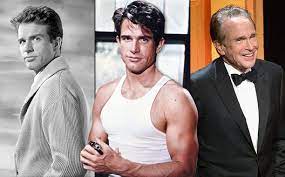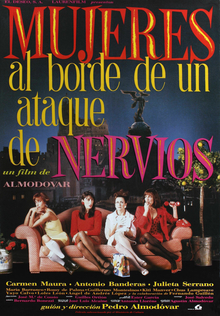
They should have let me in. Sicily. At a remote winery Robert McCall (Denzel Washington) kills gangster Lorenzo Vitale (Bruno Bilotta) and his henchmen to obtain a key to the winery’s vault and recoup money stolen in a cyber-heist. While leaving the winery, Robert is shot in the back by Vitale’s young grandson (Adriano Sabrie). Robert attempts suicide due to his injury but finds his gun out of bullets and then takes the ferry back to the mainland. While driving on the Amalfi Coast, Robert pulls over and slips into unconsciousness from shock. He is found and rescued by local carabiniere Gio Bonucci (Eugenio Mastrandrea) who brings Robert to a small coastal Italian town called Altamonte where he is treated by a doctor, Enzo Arisio (Remo Girone). As he recovers and regains his mobility Robert becomes acquainted with the locals and becomes fond of the town and its people. He makes an anonymous phone call to CIA officer Emma Collins (Dakota Fanning) to tip her off about the winery’s role in the drug trade, disguised as normal business transactions in Sicily. Collins and other CIA operatives arrive at the winery and find millions in cash along with bags of synthetic amphetamines used by ISIS terrorists hidden in a storeroom, confirming Robert’s suspicions. Meanwhile, members of the Camorra harass and kill villagers in an attempt to coerce them out of their housing and take over Altamonte for property development. Robert overhears Marco Quaranta (Andrea Dodero) a high-ranking Camorra member, pressuring local shop owner Angelo (Daniele Perrone) for protection payments. To make an example of him, the Camorra firebombs Angelo’s fish store as the entire town watches. Gio reviews video of the firebombing and calls the Italian central police for an inquiry. Along with his wife Chiara (Sonia Ben Ammar) and daughter Gabriella (Dea Lanzaro), Gio is attacked by the Camorra and beaten for interfering in their operations. Thereafter, Marco demands that Gio set up a boat for him. Overhearing the conversation, Robert asks Marco to move his operations to a different location. When Marco refuses, Robert kills him and his henchmen. The Naples head of police Chief Barella (Adolfo Margiotta) is threatened and tortured by Marco’s brother Vincent (Andrea Scarduzio) the head of the Camorra and is ordered to find the person responsible for Marco’s death … Those people don’t know where to go. Our favourite vigilante returns to equalize everything in sight, starting with the mysterious catalyst whose payoff takes the entire film to establish. Transported to Sicily and the Italian mainland, the violence returns with verve in Robert Wenk’s screenplay, the scribe of the others in the series, in the finale adapted from the TV show that starred Edward Woodward and was created by Michael Sloan and Richard Lindheim. What do you see when you look at me? McCall is ageing now and even he must be tired of all the killing. Lord knows I’m allergic to bad things. Availing of R&R in a pretty village with a pleasant woman restaurateur Aminah (Gaia Scodellaro) which introduces the hint if not the actuality of romance and a civilised doctor to oversee his recuperation he’s glad of it. Do I look like a guy who kills people? That’s an existential question that’s really kinda silly at this point in the trilogy: this film commences with a horrifying sequence of murders – yes, we know it’s McCall doing in some of the Camorra but it’s extremely shocking. Giving the CIA a tip-off is just the start of an elaborate denouement which unearths a terror cell and reveals the extent of the Mafia’s viciousness. The phone relationship with Emma is a preview of coming attractions: You don’t look like you sound/You do! That’s the opening gambit when they finally come face to face 48 minutes in. In these films Denzel is paired with younger women in a non-romantic way – they get the opportunity to do stuff and he returns to pleasantly predictable vengeful type. It’s his question to her that makes her think of the situation from a different angle: Why smuggle drugs into the most secure port in the entire region? That sets her off doing what he knows she will – directing the CIA action where it needs to go and hopefully keeping her out of the line of fire. While the women in this series are given an opportunity for some action it’s curtailed as here, where a well-timed call saves her but effectively puts her out of action – allowing him to rescue her and save the day because he’s the hero and that’s his job. That’s appropriate considering their previous pairing two decades ago in Man On Fire. Washington is an incredibly charismatic movie star and it’s a relief to have the first 45 minutes dedicated to rebuilding his constitution which allows him to cultivate relationships while the gangsters have their way with the locals, setting up an awesome revenge. His medical treatment and slow recovery gives the audience a chance to recover too before the inevitable kicks in. His visceral method leads him to explain his MO to a victim: It’s called pain compliance. It’s like he’s a doctor too! Shot in a palette verging on monochrome with chiaroscuro features by the brilliant Robert Richardson, the scheme complements the black and white morality, with the amorphous evil villainy of the Mafia rather less attractive than the mesmerising Marton Csokas in the first outing. It’s a stylish way for the series to take a bow – a kind of revenge Western with some spaghetti thrown in for good measure and a coda that explains why McCall fetched up there in the first place, a one-man reenacting of The Magnificent Seven against the mafia on their own turf. Directed as ever by Antoine Fuqua. I’m where I’m supposed to be




















